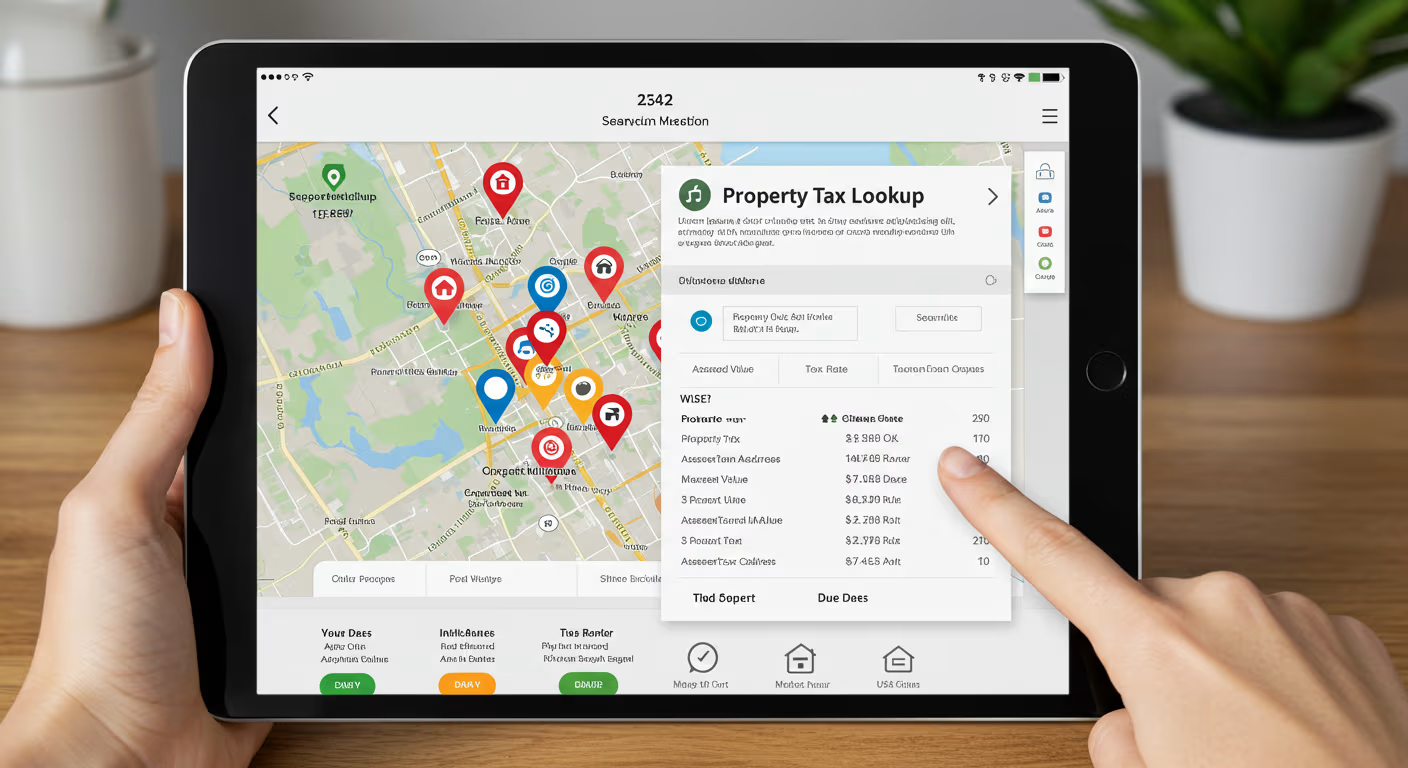What Is Toronto Property Tax?
Property tax is a local tax that homeowners pay to support municipal services such as schools, waste collection, public transit, and emergency services. The tax is calculated based on the assessed value of a property and the rate set by the city each year.
Every homeowner is responsible for paying it on time to avoid penalties or interest. Unlike income tax, which is collected by the federal and provincial governments, property tax goes directly to the municipality. This makes it an important part of owning a home or investment property in the city.
Why Use the Property Tax Lookup Tool?
The online property tax lookup tool provided by the City is a convenient way for homeowners to stay on top of their tax obligations. Instead of relying on paper bills or mailed notices, the tool gives easy access to up-to-date information.
Some of the main reasons to use it include:
- Checking if your latest payment has been processed
- Viewing past payment history for record-keeping
- Confirming upcoming due dates
- Ensuring your account is in good standing before selling or refinancing a property
For real estate investors who own multiple properties, the tool is especially useful for keeping track of several accounts in one place.
How to Access the City of Toronto Property Tax Lookup Online
The property tax lookup tool is simple to use. Homeowners can access it through the City’s official website by following these steps:
Step 1: Visit the property tax portal
Go to the City’s online property tax section. This is the official platform for all property tax information.
Step 2: Log in with property details
You will need either your property roll number, customer number, or account information. This information is usually found on your most recent property tax bill.
Step 3: Review your account
Once logged in, you can view your current balance, due dates, instalment options, and any past payments. The system is available 24/7, so you can check your property tax details whenever needed.
Information You Can Find in the Property Tax Lookup
The online lookup tool provides a wide range of details that help homeowners manage their finances more effectively. Information includes:
- Current year tax balance – How much you owe for the year, including instalments.
- Payment history – Records of all payments made to date.
- Due dates – Upcoming instalments to avoid late charges.
- Assessment details – The property’s assessed value as determined by the Municipal Property Assessment Corporation (MPAC).
Having this information in one place helps homeowners stay organised and avoid missing important deadlines.
Common Issues with Property Tax Lookup
While the system is designed to be user-friendly, there can be occasional issues. Some common challenges include:
- Login errors – Entering the wrong roll number or customer details can prevent access.
- Missing records – Payments may take a few days to show up in the system.
- Incorrect balances – If you recently made a payment, the balance may not reflect immediately.
- Technical glitches – Like any online tool, occasional maintenance or outages may occur.
If you face any of these problems, contacting the City’s property tax department is the best way to resolve the issue.
Property Tax Rates and Deadlines
Property tax is based on two main factors: the property’s assessed value and the tax rate set by the City each year. The assessed value comes from MPAC, while the municipal government determines the rate to meet budget requirements.
Taxes are usually due in instalments spread throughout the year. Late payments can result in interest charges, so it’s important to stay on top of deadlines. The lookup tool can be used to check instalment schedules and confirm when your next payment is due.
For homeowners with multiple properties or investment portfolios, keeping track of tax rates and deadlines is even more critical.
How a Real Estate Accountant Can Help with Property Taxes
Property taxes may seem straightforward, but they can quickly become complicated for homeowners with multiple properties, rental income, or changing assessments. A real estate accountant can help by:
- Reviewing property tax assessments for accuracy
- Advising on possible deductions for rental properties
- Helping track expenses related to investment properties
- Ensuring compliance with all municipal tax requirements
Professional support can save money in the long run, especially when dealing with appeals, assessments, or planning for property sales.
Do You Need an Accountant in Toronto for Property Tax Planning?
While many homeowners manage their own property tax payments, there are situations where professional help is highly beneficial. An accountant in Toronto can provide guidance on:
- Reducing tax liabilities through proper planning
- Avoiding penalties by staying compliant with payment deadlines
- Preparing financial records for property-related transactions
- Offering advice tailored to both homeowners and real estate investors
If you own multiple properties, run a rental business, or are planning to sell, an accountant’s expertise ensures you make informed financial decisions.
Final Thoughts on Property Tax Lookup
Using the property tax lookup tool is an effective way for homeowners to stay up to date with their financial responsibilities. It allows you to confirm balances, check deadlines, and keep accurate records.
At the same time, understanding how tax rates are calculated and when payments are due is essential for avoiding penalties. For more complex cases, such as investment properties or multiple holdings, working with a real estate accountant or a trusted accountant in Toronto can make property tax management much easier.
GTA Accounting provides professional services to homeowners and investors, helping them stay compliant and plan effectively for their property tax obligations.








